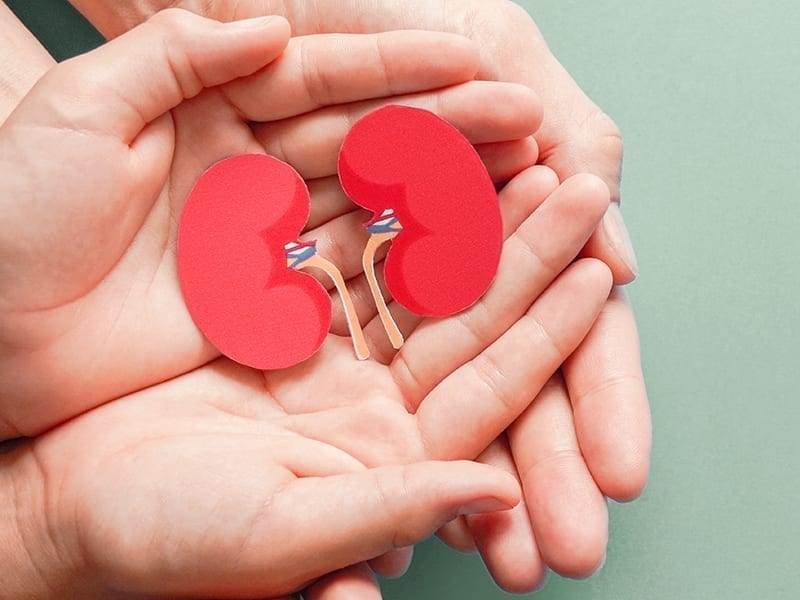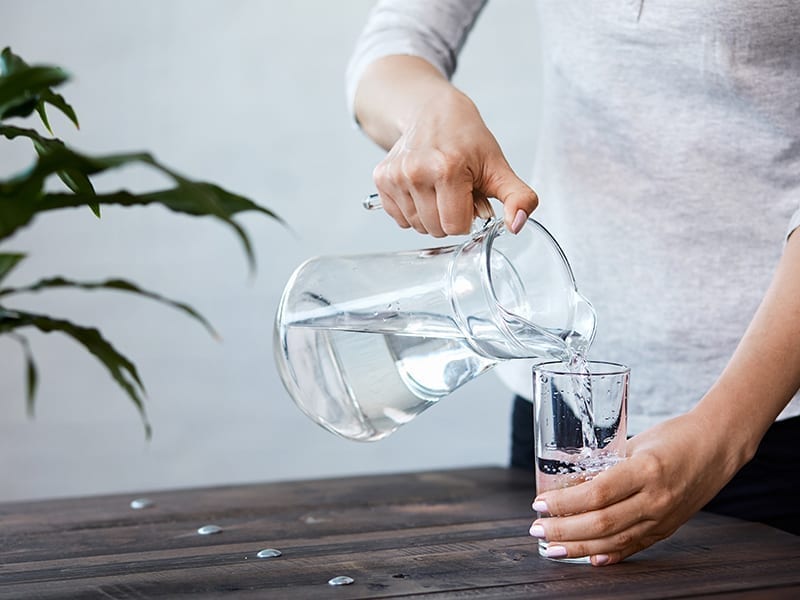A little mix of cocktails, a couple of beers, or onoue or two pegs of whisky on the weekend might not have a serious effect on your kidneys, but drinking too much can cause some serious damage to not only your kidneys but also several other parts of your body. Kidneys, as you know, are an essential organ in your body because they help filter harmful substances and toxins in your system. They are also responsible for maintaining the balance of fluids in your body. This is why, when drinking too much alcohol causes dehydration, it can interfere with the functioning of this organ.
Our in-house expert and chief medical advisor of Bangalore Kidney Foundation, Dr Veerabhadra Gupta shares a more detailed view on how alcohol affects your kidneys, and also issues some remedial measures for the weekend drinker.
1. Can you give a simple understanding on how alcohol abuse affects kidneys?
The kidneys have an important job as a filter for harmful substances. One of these substances is alcohol. The kidneys of heavy drinkers have to work harder. Alcohol causes changes in the function of the kidneys and makes them less able to filter the blood. Alcohol also affects the ability to regulate fluid and electrolytes in the body. When alcohol dehydrates (dries out) the body, the drying effect can affect the normal function of cells and organs, including the kidneys. In addition, alcohol can disrupt hormones that affect kidney function.
When experts talk about one drink, they are talking about one 12-ounce bottle of beer, one glass of wine (5 ounces), or one shot (1.5 ounces) of “hard liquor.”
Having more than three drinks in a day (or more than seven per week) for women, and more than four drinks in a day (or more than 14 per week) for men, is considered “heavy” drinking. Heavy drinking on a regular basis has been found to double the risk for kidney disease. However, women can use red wine for skin care as it is packed with antioxidants that boost skin health.
Binge drinking (usually more than four to five drinks within two hours) can raise a person’s blood alcohol to dangerous levels. This can cause a sudden drop in kidney function known as “acute kidney injury.” When this happens, dialysis is needed until a person’s kidney function returns to normal. Acute kidney injury usually goes away in time, but in some cases, it can lead to lasting kidney damage.
Too much alcohol can also affect your blood pressure. People who drink too much are more likely to have high blood pressure. And medications for high blood pressure can be affected by alcohol. High blood pressure is a common cause of kidney disease. More than two drinks a day can increase your chance of developing high blood pressure. Drinking alcohol in these amounts is a risk factor for developing a sign of kidney disease, protein in the urine (albuminuria). The good news is that you can prevent this by not drinking too much alcohol.
2. What are some early signs of kidney damage?
When your kidneys are damaged, waste products and fluid can build up in your body. That can cause swelling in your ankles, nausea, weakness, poor sleep, and shortness of breath. Without treatment, the damage can get worse and your kidneys may eventually stop working. This is serious, and it can be life-threatening.
3. Apart from impaired kidney function, can drinking in excess cause other health-related problems?
Alcohol abuse can affect more than the heart and the liver. Chronic alcohol abuse is known to be associated with pathophysiological changes that often result in life-threatening clinical outcomes, e.g., breast and colon cancer, pancreatic disease, cirrhosis of the liver, diabetes, osteoporosis, arthritis, kidney disease, immune system dysfunction, hypertension, coronary artery disease, cardiomyopathy, and can be as far-reaching as to cause central nervous system disorders.
4. Can kidneys stop functioning in a matter of days or even hours if alcoholism remains untreated for long?

Acute kidney failure as the result of alcoholism can develop in a matter of days or even hours. If untreated or if alcohol consumption continues, it can be fatal. Full recovery is possible, but there is the risk that the kidneys will be damaged beyond normal functioning.
5. How is albuminuria related to the impairment of kidneys?
“Moderate to heavy alcohol consumption may be an important risk factor for albuminuria,” a condition that describes the presence of a type of protein that is normally found in the blood becoming present in urine. If neglected it may lead to further damage and chronic kidney disease.
6. What are some of the steps one can follow to prevent alcohol dependency?
After you’ve set your goals to either stop or cut back your drinking, write down some ideas on how you can help yourself accomplish these goals. For example:
● Get rid of temptations. Remove all alcohol, barware, and other alcohol-related paraphernalia from your home and office.
● Announce your goal. Let friends, family members, and co-workers know that you’re trying to stop or cut back on drinking. If they drink, ask them to support your recovery by not doing so in front of you.
● Be upfront about your new limits. Make it clear that drinking will not be allowed in your home and that you may not be able to attend events where alcohol is being served.
● Avoid bad influences. Distance yourself from people who don’t support your efforts to stop drinking or respect the limits you’ve set. This may mean giving up certain friends and social connections.
● Learn from the past. Reflect on previous attempts to stop or reduce your drinking. What worked? What didn’t? What can you do differently this time to avoid pitfalls?
Cutting back vs quitting alcohol altogether
Whether or not you can successfully cut back on your drinking depends on the severity of your drinking problem. If you’re an alcoholic—which, by definition, means you aren’t able to control your drinking—it’s best to try to stop drinking entirely. But if you’re not ready to take that step, or if you don’t have an alcohol abuse problem but want to cut back for personal or health reasons, the following tips can help:
Set your drinking goal
Choose a limit for how much you’ll drink, but make sure your limit is not more than one drink a day if you’re a woman, two drinks a day if you’re a man—and try to have some days each week when you won’t drink alcohol at all. Write your drinking goal down and keep it where you will frequently see it, such as on your phone or taped to your refrigerator.
Keep a record of your drinking to help you reach your goal
For 3 to 4 weeks, write down every time you have a drink and how much you drink. Reviewing the results, you may be surprised at your weekly drinking habits.
Cut down drinking at home
Try to limit or remove alcohol from your home. It’s much easier to avoid drinking if you don’t keep temptations around.
Drink slower
When you drink, sip slowly and take a break of 30 minutes or one hour between drinks. Or drink soda, water, or juice between alcoholic drinks. Drinking on an empty stomach is never a good idea, so make sure you eat food when you drink.
Schedule one or two alcohol-free days each week
Then, try to stop drinking for one week. Make a note about how you feel physically and mentally on these days—recognizing the benefits may help you to cut down for good.
Alcohol addiction treatment options:
Some people are able to stop drinking on their own or with the help of a support group. Others need medical supervision in order to withdraw from alcohol safely and comfortably. Which option is best for you depends on how much you’ve been drinking, how long you’ve had a problem, the stability of your living situation, and other health issues that you may have.
7. Is it true that there are benefits to drinking in moderation?
Moderate alcohol consumption may provide some health benefits, such as:
- Reducing your risk of developing and dying of heart disease
- Possibly reducing your risk of ischemic stroke (when the arteries to your brain become narrowed or blocked, causing severely reduced blood flow)
- Possibly reducing your risk of diabetes
However, eating a healthy diet and being physically active have much greater health benefits and have been more extensively studied.
Keep in mind that even moderate alcohol use isn’t risk-free. For example, even light drinkers (those who have no more than one drink a day) have a tiny, but real increased risk of some cancers, such as oesophagal cancer. And, of course, drinking and driving is never a good idea.
8. Can you give us some remedial measures for a weekend drinker?
The following steps will help you prepare mentally and physically for avoiding weekend drinking:
- Sleep
Getting consistent rest for a few days before a weekend full of drinking will definitely help your body better prepare.
- Hydrate
This should go without saying, but a majority of people who experience hangovers Sunday morning fail to drink water after partying. If you’re prepping for a week-long or a weekend vacation, make sure to drink lots of water in the days leading up to your departure.
- Eat!
In an attempt to shield your body from adverse effects, eating will help slow your body’s absorption of alcohol. Eating will also help metabolize alcohol. You should be eating meals full of bread, meat, cheese, pasta, milk a few days ahead of time as well as the day of. These foods can be digested slowly and are extremely high in protein.
- Vitamins
Drinking heavily rids your body of essential nutrients that vitamins and minerals provide to your system. Therefore, grab an extra few multivitamins for your trip to ensure your body is given the necessary tools to combat a few days of binge drinking.
- Resist Mixing
Do not mix different types of alcohol. Switching back and forth between dark and light is extremely hard for your stomach to digest, not to mention your hangover the next morning will be a doozy.
Watch this video to learn 3 easy remedies for hangovers.
- Avoid Sugar
While rum and cokes maybe your favourite drink, you really should avoid this combination.
- Transportation
If you’re prepping your body to drink make sure you also make preparations to ensure your safety. Arrange for transportation that doesn’t require you to drink and drive.
- Leave Valuables at Home
If you can’t afford to lose it, do not wear/bring it out.
- Plan Ahead
A night/nights of drinking may disrupt your capability to problem solve, focus and prevent you from undertaking complex tasks. It’s seen that five or more days of drinking can affect your brain and body for roughly about three days. Therefore, if you know you have a major presentation at work the day after your vacation, try to postpone that presentation or hand it off to someone else.
9. What are some healthy beverages and foods that can actually keep a kidney functioning strong?

Top drinks and foods for your kidneys include:
- Water. For obvious reasons, water is the best tool for balancing water balance in your body.
- Cranberry Juice
- Cranberries
- Apples
- Mushrooms
- Egg Whites
- Kale
- Cauliflower
Disclaimer: This is for the general information of the readers. Always consult a Nephrologist for specific renal health problems.


